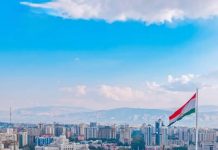In the rapidly changing world of the 21st century, education plays a pivotal role in shaping individuals, societies, and nations. The quality of education directly influences social development, economic prosperity, and technological advancement. As new challenges arise due to globalization, technological innovation, and changing labor markets, the need to improve educational quality has become more urgent than ever. This article explores the importance of education quality, the challenges faced by modern educational systems, and effective strategies to enhance education in contemporary conditions.
In the contemporary world, education serves as the cornerstone for personal development, social progress, and economic growth. As societies evolve rapidly under the influence of globalization, technological advancement, and shifting labor market demands, the quality of education becomes increasingly critical. Improving education quality in modern conditions requires a multifaceted approach involving innovations in teaching methods, curriculum reform, technological integration, and policy support. This article explores key strategies and challenges associated with enhancing educational quality in today’s dynamic environment.
Quality education goes beyond the mere transmission of knowledge; it involves fostering critical thinking, creativity, and lifelong learning skills. It equips learners with the tools to adapt to changing circumstances and contribute meaningfully to society. High-quality education reduces social inequalities, promotes economic development, and empowers individuals to lead fulfilling lives. Therefore, ensuring educational excellence is a priority for governments, educators, and communities worldwide.
Modern education faces numerous challenges that hinder the achievement of high quality. These include:
- Rapid Technological Changes: The swift pace of technological innovation demands continuous updates in teaching methods and materials.
- Diverse Student Needs: Students come from varied backgrounds, with different learning styles and capabilities, requiring personalized approaches.
- Resource Constraints: Many educational institutions struggle with insufficient funding, outdated infrastructure, and lack of access to learning resources.
- Teacher Training Gaps: Educators often lack adequate professional development opportunities to keep pace with modern pedagogical techniques.
- Globalization Pressures: The need to prepare students for global citizenship introduces additional curricular and linguistic challenges.
To overcome these challenges, a combination of approaches is necessary:
- Innovative Teaching Methods: Incorporating active learning, project-based learning, and collaborative techniques helps engage students more effectively. Emphasizing problem-solving and critical thinking prepares learners for real-world challenges.
- Curriculum Reform: Updating curricula to include contemporary knowledge areas such as digital literacy, environmental education, and global awareness ensures relevance. Integrating interdisciplinary content fosters holistic understanding.
- Technology Integration: Utilizing digital tools, online platforms, and educational software expands access and personalizes learning experiences. E-learning can bridge gaps caused by geographical or social barriers.
- Teacher Professional Development: Continuous training programs and workshops enable educators to adopt modern pedagogical methods and stay informed about educational research and innovations.
- Inclusive Education Policies: Developing policies that address the needs of marginalized groups, support special education, and promote equity ensures that all learners benefit from quality education.
Effective governance and policy frameworks underpin efforts to improve education quality. Governments must allocate adequate funding, establish clear standards, and monitor educational outcomes regularly. Collaboration between public and private sectors can mobilize additional resources and foster innovation. Policies encouraging community involvement and partnerships between schools, families, and businesses strengthen the educational ecosystem.
Improving the quality of education in modern conditions is a complex but vital task. It demands commitment from all stakeholders—governments, educators, students, and communities—to embrace change and innovation. By implementing comprehensive strategies that address pedagogical, technological, and policy dimensions, societies can ensure that education fulfills its role in preparing individuals for the challenges and opportunities of the 21st century. Ultimately, high-quality education is the key to sustainable development, social cohesion, and individual empowerment.
Abdulmuminzoda Nasimjon Abdulmumin
Dean of the Faculty of Accounting and Digital
Economy
Candidate of Economic Sciences, Associate Professor
Tajik National University
Majidzoba Bahodur Ahmad
Vice dean on education of the Faculty of
Accounting and Digital Economy
Candidate of Economic Sciences



